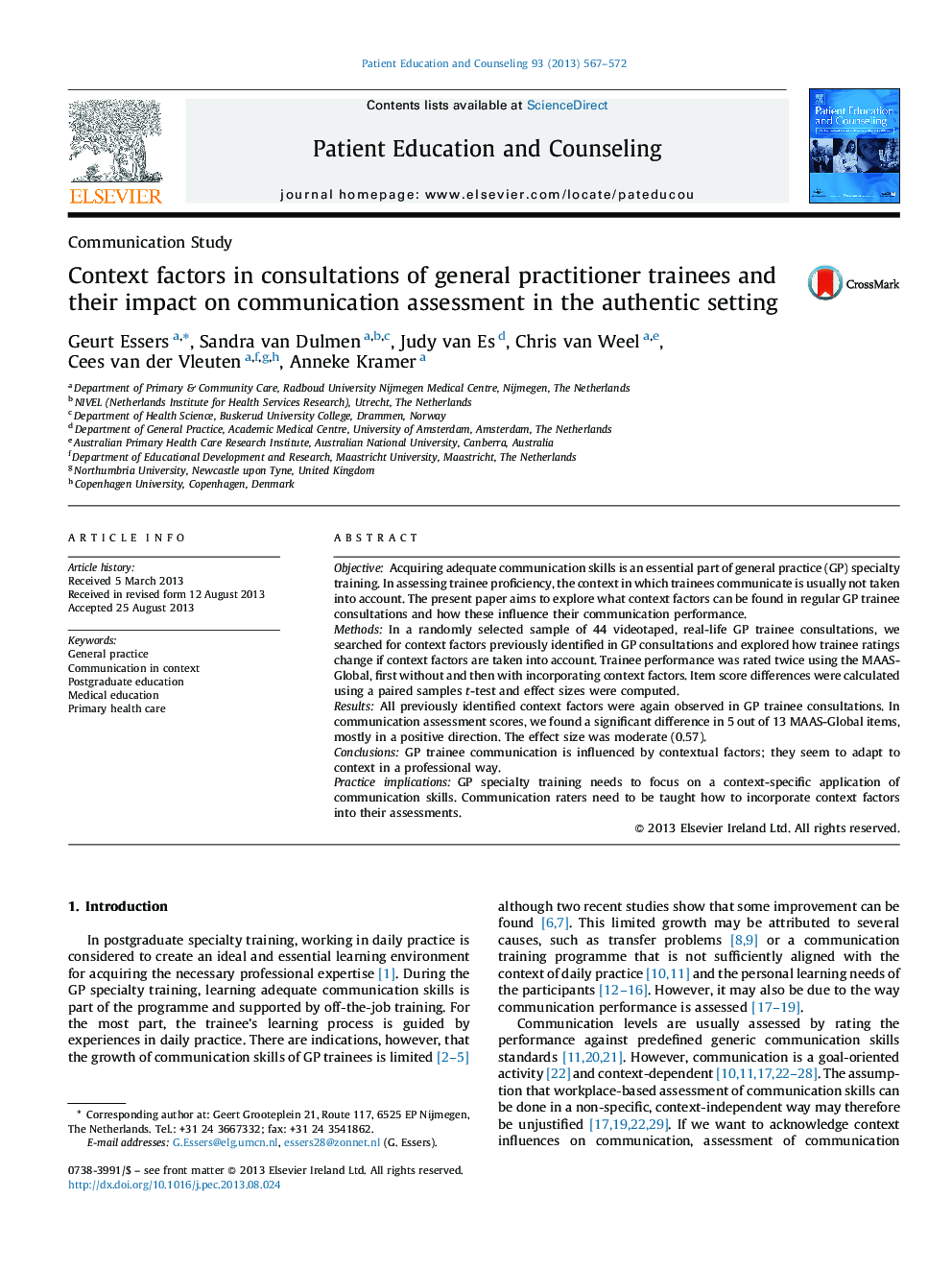| Article ID | Journal | Published Year | Pages | File Type |
|---|---|---|---|---|
| 6153092 | Patient Education and Counseling | 2013 | 6 Pages |
ObjectiveAcquiring adequate communication skills is an essential part of general practice (GP) specialty training. In assessing trainee proficiency, the context in which trainees communicate is usually not taken into account. The present paper aims to explore what context factors can be found in regular GP trainee consultations and how these influence their communication performance.MethodsIn a randomly selected sample of 44 videotaped, real-life GP trainee consultations, we searched for context factors previously identified in GP consultations and explored how trainee ratings change if context factors are taken into account. Trainee performance was rated twice using the MAAS-Global, first without and then with incorporating context factors. Item score differences were calculated using a paired samples t-test and effect sizes were computed.ResultsAll previously identified context factors were again observed in GP trainee consultations. In communication assessment scores, we found a significant difference in 5 out of 13 MAAS-Global items, mostly in a positive direction. The effect size was moderate (0.57).ConclusionsGP trainee communication is influenced by contextual factors; they seem to adapt to context in a professional way.Practice implicationsGP specialty training needs to focus on a context-specific application of communication skills. Communication raters need to be taught how to incorporate context factors into their assessments.
